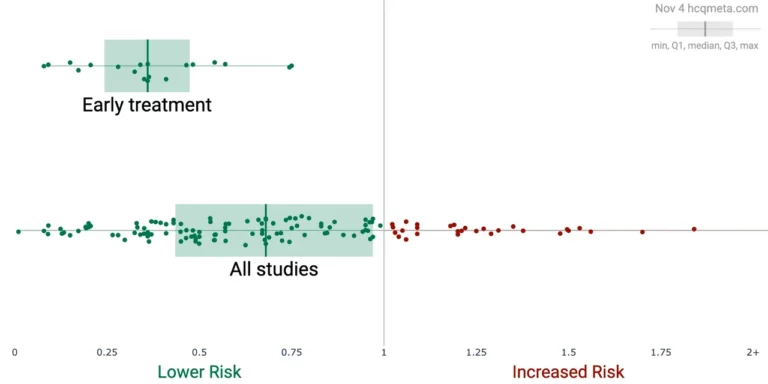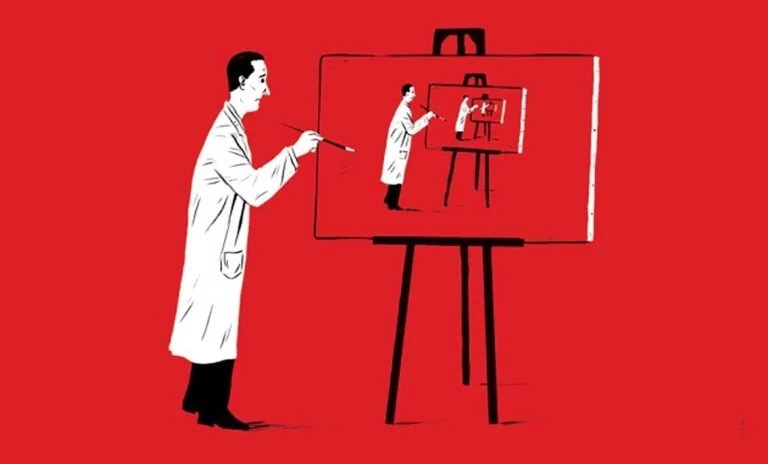Are Facts Possible Without Context?
Illustration with the perils of ‘data-driven’ ambitions swallowing contextless data: adopting flawed strategies that serve outsiders’ ontologies.
Reason Praxis | Make Sense in Epistemology

Can facts exist independently of context? While facts are often seen as objective truths, closer examination reveals that they rely on underlying systems of meaning. This article explores a logical progression of ideas, leading to the conclusion that no fact exists without context. It also clarifies that recognising context-dependence does not imply relativism and that reality itself exists independently of beliefs, perceptions, or democratic processes. It is crucial to make sense of contextless data in a context-full world, where ‘data-driven’ ambitions often risk consuming unverified data, or without meaning and, worse, ‘Dataviruses‘ that serve their creators, leading to governance collapse or even passive servitude.
Plan
- I. Facts as Isolated Data Points
- II. The Role of Context in Interpretation
- III. Data vs. Facts: What’s the Difference?
- IV. Can Any Fact Truly Exist Without Context?
- V. Conclusion
- VI. Practical Implications: Why This Matters in Business and Strategy
- VII. To Go Further
I. Facts as Isolated Data Points
At first glance, facts appear to be self-evident truths. Consider the statement: “Water boils at 100°C at sea level.” This seems like a universal fact. However, this fact is only valid within the context of the Celsius scale and Earth’s atmospheric pressure at sea level. Without these contextual elements, the number 100 holds no inherent meaning.
Another example is the word “London” in a database. Without additional information, we cannot determine whether this refers to London, UK, or London, Ontario, Canada. The word itself is a fact – it is indeed spelled L-o-n-d-o-n – but its meaning is incomplete without context.
Data represents an attempt to capture and explain the world shaped through the metaphysical ontology and value judgments of a given society or organisation. However, while the law is the outcome of democratic systems and may yield varying levels of quality (as history teaches us), data should be derived solely from robust scientific processes, grounded in order and discipline, and aligned with reality.
Key Insight: Data points exist independently, but until they are placed within a framework of interpretation, they remain incomplete
II. The Role of Context in Interpretation
Facts gain their status as facts only when interpreted through a specific lens. This is what we defined in ‘I. Facts as Isolated Data Points’ as data being shaped through the metaphysical ontology and value judgments of a given society or organisation.
This process requires several components:
- Capture: Defining what is to be observed, how this observation will happen – method, instruments, how the method and instrument shall translate the captured information into data.
- Categorisation: Defining what the data represents (e.g., identifying a numerical value as a temperature).
- Disambiguation: Clarifying conflicting possibilities (e.g., distinguishing between different cities named London).
- Verification: Ensuring that the fact aligns with reality (e.g., confirming that water boils at 100°C under standard atmospheric pressure).
Example: The statement “This child is 10 years old” is factual only if we know:
- The child’s date of birth.
- The current date.
- The decimal system of counting years.
Without these three elements, the number 10 could be meaningless – or even misleading if interpreted in hexadecimal notation, where 10 represents 16 in decimal.
Key Insight: Facts are not just observed; they are constructed and made understandable through systems of measurement, categorisation, and scientific and, to some extent, cultural conventions.
III. Data vs. Facts: What’s the Difference?
To further clarify this concept, we must distinguish between raw data and facts:
- Raw Data: Unprocessed information with no assigned meaning (e.g., “23.7” as a standalone number).
- Facts: Data that has been contextualised, verified, and assigned significance (e.g., “The temperature is 23.7°C”).
Even seemingly objective facts – such as historical dates – depend on systems of recording and interpretation. The statement “World War II ended in 1945” assumes the use of the Gregorian calendar, not an alternative system of time measurement.
Key Insight: Facts emerge when raw data is processed through human-defined systems of meaning.
IV. Can Any Fact Truly Exist Without Context?
This leads us to the core question: Is it possible for any fact to exist independently of context? Consider the following scenarios:
- Objective Reality: The moon orbits the Earth – this is an aspect of reality that exists independently of human perception.
- Fact as Representation: The statement “The moon orbits the Earth” is a fact – but only because humans have created concepts like orbit, Earth, and moon to describe reality.
Thus, while reality itself is context-independent, any description of reality is context-dependent. Facts are the result of interpreting and representing reality within specific frameworks.
Key Insight: Facts cannot exist without context because they are human-defined representations of objective reality. However, this context-dependence does not imply that all perspectives are equally valid – objective standards, logical reasoning, and empirical evidence still provide a foundation for distinguishing credible interpretations from subjective distortions.
V. Conclusion
Through this step-by-step examination, we arrive at the final conclusion:
- Reality is context-independent. It exists regardless of human perception or interpretation.
- Facts are context-dependent. They only become meaningful when placed within systems of measurement, categorisation, and language.
- Fact and Reality ought to be aligned: the farther the distance between both, the weaker the science and method applied are, and the higher opinion, errors or ignorance as the only outcome. Building on sand or solid foundations is a choice.
In other words, a fact without context is merely a raw data point – it becomes a fact only when embedded within a framework that gives it meaning. Therefore, to understand facts, we must first understand the contexts that shape them.
VI. Practical Implications: Why This Matters in Business and Strategy
While this discussion may seem abstract, it has direct relevance to business and strategy. In a world where data is abundant, the challenge is not collecting more information but understanding the context in which that data was created. Many organisations aspire to becoming “data-driven” without questioning the assumptions embedded within their data, leading to flawed insights and misguided decisions.
The real advantage lies in understanding data within its proper context and beforehand capturing the reality with the right method, i.e. transforming objective reality into information suitable for actionable insights that, in turn, drive smarter decisions and long-term resilience.
As we wrote earlier, beware the Datavirus – data that looks neat and good, yet is designed to infiltrate corporate databases, influence decision-makers perceptions of reality.
Data capture and validation are forms of forensics and evidence. This requires information systems and mindsets grounded in objective metaphysical or doctrinal paradigms with the ability to run rigorous cross-examinations.
Recognising that facts are context-dependent fosters critical thinking and more accurate analyses. By questioning assumptions, identifying hidden contexts, and aligning data with real-world complexities, organisations can move beyond surface-level trends to uncover deeper truths.
In the end, as we often say: the method comes first – technology follows.
VII. To Go Further
The following provides some guidance to learn more about the concepts and ideas feeding our thoughts and mobilised for the purpose of writing this article.
- On Facts as Isolated Data Points: Aristotle’s Metaphysics illustrates how categorisation defines knowledge; Wittgenstein’s Philosophical Investigations shows that words gain meaning through use; Russell’s logical atomism helps break down complex data into simpler components.
- On the Role of Context in Interpretation: Kant’s Critique of Pure Reason explains how perception shapes facts; Kuhn’s The Structure of Scientific Revolutions illustrates paradigm shifts that change factual interpretation; Foucault’s work reveals how societal power influences what is accepted as fact.
- On Data vs. Facts: Searle’s The Construction of Social Reality shows how shared beliefs create facts; Popper’s falsifiability principle ensures that facts are scientifically valid; Saussure’s semiotics demonstrates how context gives symbols meaning.
- On Whether Facts Can Exist Without Context: Descartes’ Meditations on First Philosophy questions whether anything can be certain without context; Hume’s empiricism underscores that experience shapes facts; Einstein’s relativity shows that even physical facts depend on perspective.
- On the Nature of Reality and Solipsism: Gorgias’ On Non-Existence challenges the existence of objective truth; Berkeley’s idealism claims that reality exists only as it is perceived; Kant’s Critique of Pure Reason bridges perception and reality; Schopenhauer’s The World as Will and Representation portrays the world as shaped by individual experience.
- On Reality as Independent of Perception and Belief: Reality exists objectively, regardless of whether perceptions are accurate or political beliefs attempt to reshape it. Examples include scientific laws such as gravity or thermodynamics, which operate independently of human opinion.
- On Context-Dependence Without Relativism: Although facts are context-dependent, this does not imply that all perspectives are equally valid. Objective standards, logical reasoning, and empirical evidence still provide a foundation for distinguishing credible interpretations from subjective distortions.
- On Reality as Independent of Perception and Belief: Plato’s Republic explores the distinction between appearances and reality; Galileo’s scientific method demonstrates how empirical evidence overrides subjective beliefs; Richard Feynman’s work in physics illustrates that natural laws, like gravity, remain constant regardless of human perception.
- On Context-Dependence Without Relativism: Aristotle’s Nicomachean Ethics emphasises objective principles guiding human action; Karl Popper’s The Open Society and Its Enemies argues for critical rationalism as a means of distinguishing truth from opinion; Thomas Nagel’s The View from Nowhere explores the possibility of objective knowledge despite subjective perspectives.
Thank you for your time and interest.
Please join us by subscribing to our Blog. Posts are occasional and written as thoughts come.
Please leave your comment at the bottom of this page to continue the reflection on this post.
If you are looking for a reliable, independent professional consultancy to assist you in getting through the mist and the storm and cutting through an often artificial complexity, please do get in touch with us for an informal discussion, or write to contact @ reasonmakesense .com (please remove spaces)
Get in touch to discuss freely; reason will Make Sense, with you and for you.
A few words about Reason

reason supports Shareholders, Board, C-Suite Executives and Senior Management Team in achieving Business Excellence and Sustainability through our Praxis unique approach.
We Make Sense with you and for you.
We work and think with integrity, are independent and fed by a very broad spectrum of robust information sources, which is certainly one of the rarest and best qualities a consultancy can offer demanding decision-makers willing to overcome challenges and reach impactful, tangible and measurable Business Excellence.
We follow reason, facts, best practices, common sense and proper scientific approaches. This is our definition of professionalism. It brings reliability, confidence and peace of mind.
Please check our offering, subscribe directly on this page, write to contact @ reasonmakesense .com (without the spaces) or click on our logo below to get redirected to our contact form.
Thank you for reading!
Reason Praxis | Make Sense
Excellence & Sustainability
www.reasonmakesense.com
There is nothing wrong in doing things right, first time.
Share this post







